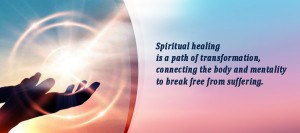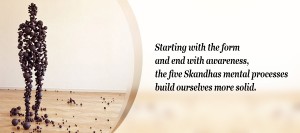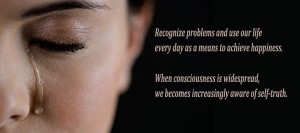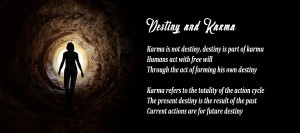People often think that success should generate confidence. Yet some of the most successful people remain insecure about their achievements and always afraid of losing ground. Some successful people never able to enjoy their success. Some successful people are haunted by fear of failure. Some people whom others would call successful still call themselves unsuccessful. It is not often that other people’s definitions of success match our own expectations or ideals.
Image-enhancement is yet another often suggested confidence-builder. Praise is one of the most mentioned confidence-builders.
If you want to help others be more confident, praise them. If you want to feel confident, surround yourself with people who think well of you and consistently tell you that.
Genuine and deserved praise is heartwarming. Yet we know we can’t become dependent on it. What would happen to us when we’re facing something alone with no one to cheer us on? Worse yet, when we feel the least confident, we are least able to accept and appreciate praise, whether it’s disingenuous or genuine.
The successes against which we measure ourselves, the appearance of confidence with which we cloak ourselves, or the opinions of others with which we buttress ourselves are off-the-shelf items. We have to shop others’ opinions and ideas to get them. Then we have to make them fit the opinions and ideas we already have about ourselves. The difficulty with any external input into what we call confidence is that it only connects with the ego. That ego, the personal thinking we have about who and what we are or should be, is like a castle in the sand. It is a loose structure created from imagination, easily damaged, and impossible to sustain in the face of ordinary natural events without constant effort and attention.
When we are focused on creating and maintaining confidence from the outside-in, we are forced to make an effort to think about ourselves a lot. How am I doing? How do I look? Who’s noticing? What do they think? What should I do now? Confidence appears to be a special, personal state that requires us to calibrate our individual performance continually. For those who take this definition to heart, confidence is a form of self-absorption. When we’re feeling confident, we think well of ourselves and feel proud; when we’re not, we think ill of ourselves and feel distressed. But we’re always thinking about ourselves.
Thinking about ourselves is the certain route to insecurity. Which is why people’s “confidence” can be “shaken” or people “lose their confidence” or people have to “bolster their confidence” in the face of doubt. When we are thinking only about our own, individual, special personal world, life in general is a mystery to us and we see only the limits and boundaries we have created, rather than seeing ourselves as part of the larger whole of humanity.
Awareness to form self-confidence
Self-awareness is also having the ability to accurately monitor our self confidence. As we pay attention to what’s happening inside our mind, we can acknowledge and accept these thoughts, emotions and reactions as the inevitable part of being human, rather than giving ourselves a hard time about it.
Self-awareness confidence sometime goes beyond about our self-confidence. It is also about paying attention to our inner state with a open mind and heart. Our mind is extremely good at storing information about how we react to a certain event to form a praise of our emotional life. This conditions our mind to react in a certain way when we encounter a similar event in the future.
For example, if we’re afraid of public speaking, but we successfully presented on a topic before, our brain will be conditioned to say, “hey, it wasn’t so bad – everything will be okay”
Self-awareness allows us to become aware of these thought patters and how we will react to certain situations. It sets the foundation for building confidence because we know who we are, how we feel and what behaviors we might have.
The ability to monitor our emotions and thoughts from moment to moment is key to understanding ourselves better, being at peace with who we are and proactively managing our thoughts, emotions, and behaviors.
Really self-aware people tend to act consciously rather than react passively, to be in good psychological health and to have a positive outlook on life. They also have greater depth of life experience and are more likely to be more compassionate to themselves and others.
So why aren’t we more self-aware?
Studies show that almost half of the time we operate on “automatic pilot” or are unconscious of what we are doing or how we feel, as our mind wanders to somewhere else other than here and now. Think about it: when was the last time you really paid attention while brushing your teeth? Did you think about how the bristles felt against your gums, how the toothpaste tasted or how long it actually took? My guess is no.
In addition to the constant mind-wandering, confirmation bias also affects our ability to have a more accurate understanding of ourselves. Confirmation bias can trick us into searching for or interpreting information in a way that confirms our belief about something.
Feedback is critical to our self-awareness because we aren’t living in the moment. We need that outside perspective to reel us in to either support or disprove our thoughts and beliefs about ourselves.
For example, if you’re giving presentation to an audience, feedback will help you understand things like: could everyone hear you, was your message clear, did everyone understand the homework…
If your message was on point, but the people in the back of the room couldn’t hear a word you said and left confused, you may think you’re a failure or weren’t good enough or you didn’t explain things well enough. You just have to speak louder next time. But because your don’t want feedback, your don’t ask the audience what could be improved.
Increase Self Confidence through awareness
If we want to be more confident, we have to learn first to be self-aware. Self-awareness helps us become at peace with who we are and better manage our thoughts, beliefs, emotions and reactions. Self-awareness is the foundation on which we’ll build confidence because it separates the real from the perceived. If we truly understand what’s real, instead of believing false things about ourselves, we have a better chance at being confident.
So how do we improve self-awareness?
The first thing we can do is practice mindfulness. Mindfulness is simply paying attention in a particular way, on purpose, in the present moment, non-judgmentally, with an open mind and open heart.
It’s easier than it sounds; try to make out a list of activities you tend to do on auto-pilot: showering, driving to work, eating. Then, throughout the day, make it a point to pay attention during those activities. What do you hear around you? What do you see/feel/sense? If your mind wanders to another thought, bring it back to the activity.
The next way to improve self-awareness is to – you know I had to do this – yes, ask for feedback.
Think about a negative belief you have about yourself, something you know in your heart isn’t true but you believe it anyway. Something like “I’m a terrible parent” or “I’ll never get that job” or “I’ll always be overweight.” Write this belief down. Then, do two things. One, to overcome confirmation bias, disprove this belief.
Look for evidence to the contrary a time you made a great parenting choice. Two, ask for feedback. Feedback doesn’t have to be about a particular skill or activity. You can practice asking for feedback by simply asking your friends and family what your best strengths are. You can also ask them what you could improve.
And speaking of strengths, one of tips for building self-awareness is taking personality assessments.
Developing of who you are
Once you understand yourself from taking assessments, asking for feedback, taking inventory of your false beliefs and practicing mindfulness, you’ll start to build a stronger picture of who you are. Identifying your personal values or developing a personal mission statement are two great ways to improve your self-awareness.
Understanding our strengths and values helps us form a strong picture of who we are. When we have that picture, confirmation bias is easier to overcome, we handle failure better, we’re more likely to take calculated risks, and decision-making becomes a breeze.
Gallup, the company whose researchers created StrengthsFinder, reports that people who use their strengths every day are three times more likely to live a higher quality of life. They found that people are happier, have less stress or anger, achieve their goals, have more respect from others, and even feel less physical pain.
Understanding our strengths gives us a new language for understanding and discussing what we naturally do best, because, let’s face it it can be hard to talk about ourselves without sounding braggy!
Knowing what gives us energy, how we process information, how we make decisions and how we relate to the world are critical components to healthy self-awareness.
Understanding our values is equally important. Values guide our behaviors, decisions, and action. When you know what you value, you can live in accord with those values. This leads to greater fulfillment, clarity and self-awareness.
Are you starting to see the theme, here? Understanding and fully using our strengths and values leads to better decision-making, which leads to more consistent action, which leads to greater self-awareness. Remember, clarity comes from execution.
Greater self-awareness leads to greater self-confidence. Being deeply aware of who we are, what we value and what we’re good at are the key foundations for building confidence and making it a habit.
Remember that confidence is our ability to believe in ourselves. We often tell ourselves lies about our abilities, which keeps us in a state of low confidence. When we deeply know ourselves, we can differentiate between the truth and the lies.





